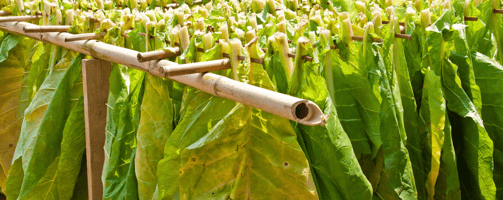The TAZAMA oil pipeline between Dar es Salaam in Tanzania and Ndola in Zambia was completed in late...
Is the AGOA Trade Agreement Dead and Buried?
The African Growth and Opportunity Act (AGOA), enacted in 2000, has been a cornerstone of US/Africa economic relations, granting duty-free access to the US market for over 1,800 products from eligible sub-Saharan African countries. As AGOA approaches its expiration in September 2025, speculation about its future has intensified, particularly with shifting US trade priorities. Is AGOA dead and buried, or does it still hold potential for renewal and reform?
AGOA has undeniably driven economic progress. It has created hundreds of thousands of jobs, particularly in apparel and textiles, in countries like Lesotho, Kenya, and Madagascar. South Africa and Nigeria have leveraged the act for automotive and oil exports, respectively, with total AGOA trade reaching $47.5 billion in 2023. However, its impact is uneven. Only five countries account for over 80% of non-oil exports, and overall US imports from AGOA nations represent just 1% of total US imports, raising questions about its effectiveness in diversifying African economies. Critics argue that AGOA’s rigorous eligibility criteria—requiring progress in market liberalisation, rule of law, and human rights—limit its reach, with 14 of 49 potential beneficiaries currently suspended.
The current US political climate, marked by economic nationalism and scepticism toward free trade, casts further doubt. President Donald Trump’s preference for bilateral, transactional deals and symmetric tariffs over multilateral agreements like AGOA suggests a potential overhaul or outright termination. Recent social media posts reflect pessimism, with users claiming AGOA is “history” or predicting its non-renewal due to heightened geopolitical tensions (particularly with South Africa) and proposed tariffs. Conversely, some African nations and US senators are advocating for a 10-year extension to AGOA in order to provide stability for businesses and investors.
Rather than being dead, right now AGOA faces a critical juncture. The rise of the African Continental Free Trade Area (AFCFTA) offers a chance to align US trade policy with Africa’s regional integration goals. Reform proposals include relaxing eligibility criteria, expanding product coverage to include technology, and addressing compliance challenges for smaller nations. While AGOA’s future is uncertain, its past successes and Africa’s growing economic significance suggest it should evolve rather than vanish. Strategic updates could ensure AGOA remains a vital tool for fostering US/Africa trade and countering China’s expanding influence. August and September discussions amongst the primary signatories will provide a clearer sense of direction and clarify the future trading dispensation between the US and Africa going forward. Watch this space...



